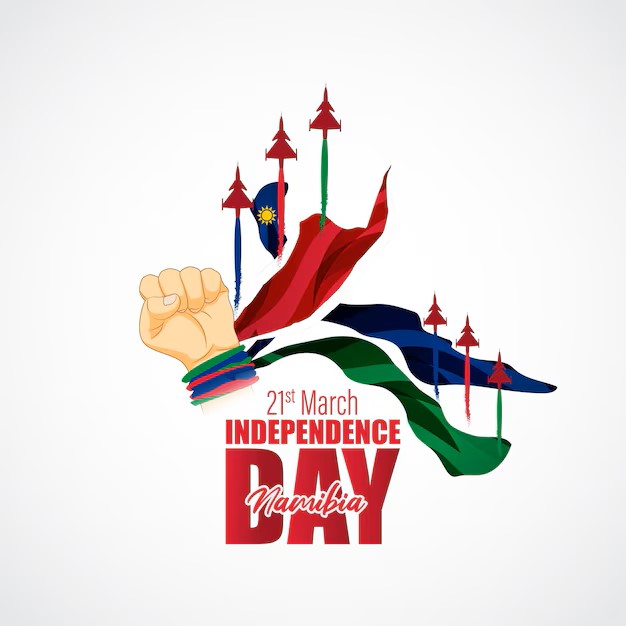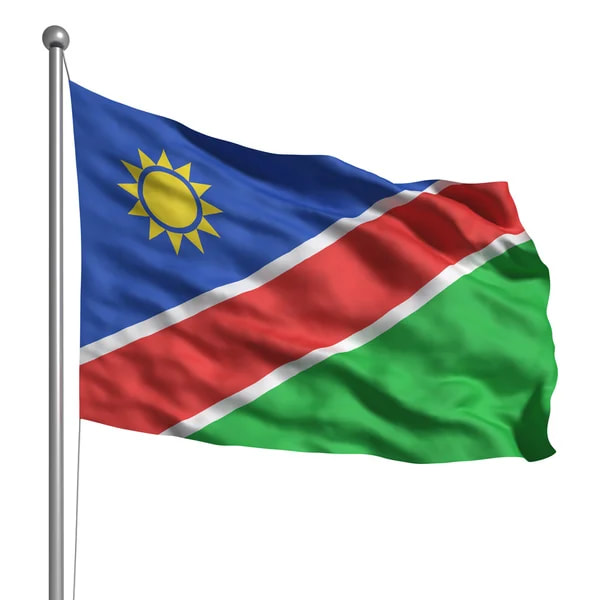Namibia is a country in Southern Africa. Its western border is the Atlantic Ocean. It shares land borders with Angola and Zambia, to the north, Botswana to the east and South Africa to the east and south. Although it does not border Zimbabwe, less than 600 feet of the Botswana right bank of the Zambezi River separates the two countries. Its capital and its largest city is Windhoek. Its population is just over 3 million people who are sparsely located--making it one of the most sparsely populated countries in the world.
This country has been inhabited since prehistoric times by the Khoi, San, Damara, and Nama people. Around the 14th century immigrating Bantu people arrived as part of the Bantu expansion. From the 1600 Ovambo formed kingdoms such as Ondonga and Oukwanyama.
In 1884 the German Empire established rule over most of the territory, forming a colony known as German West Africa. Between 1904 and 1908, German troops waged a punitive campaign against the Herero and Nama. German rule ended during the first World War with a 1915 defeat by South African forces. After the end of the war by 1920 , the League of Nations mandated administration of the colony to South Africa.
Today Namibia is a stable parliamentary democracy. It is also a unitary semi presidential republic. There is a president, vice president, prime minister and his deputy, The chief justice heads the legal side while in the legislature there is an upper house and a lower house.
Blacks make up the main ethnic group where 87% of this group lives there. Colored account for 6.5%, Whites just 6% and Others 0.5%. The main religion is Christianity, with 87.9% of the population identifying with this religion. Just 10.2% are observers of traditional faiths, and 1.6% have no religion.
The economy is driven by agriculture, mining --mainly, diamond, uranium, gold, silver and base metals. However, the manufacturing sector is relatively small. Namibia's current GDP stands at $30.6 billion USD.
This country has been inhabited since prehistoric times by the Khoi, San, Damara, and Nama people. Around the 14th century immigrating Bantu people arrived as part of the Bantu expansion. From the 1600 Ovambo formed kingdoms such as Ondonga and Oukwanyama.
In 1884 the German Empire established rule over most of the territory, forming a colony known as German West Africa. Between 1904 and 1908, German troops waged a punitive campaign against the Herero and Nama. German rule ended during the first World War with a 1915 defeat by South African forces. After the end of the war by 1920 , the League of Nations mandated administration of the colony to South Africa.
Today Namibia is a stable parliamentary democracy. It is also a unitary semi presidential republic. There is a president, vice president, prime minister and his deputy, The chief justice heads the legal side while in the legislature there is an upper house and a lower house.
Blacks make up the main ethnic group where 87% of this group lives there. Colored account for 6.5%, Whites just 6% and Others 0.5%. The main religion is Christianity, with 87.9% of the population identifying with this religion. Just 10.2% are observers of traditional faiths, and 1.6% have no religion.
The economy is driven by agriculture, mining --mainly, diamond, uranium, gold, silver and base metals. However, the manufacturing sector is relatively small. Namibia's current GDP stands at $30.6 billion USD.

